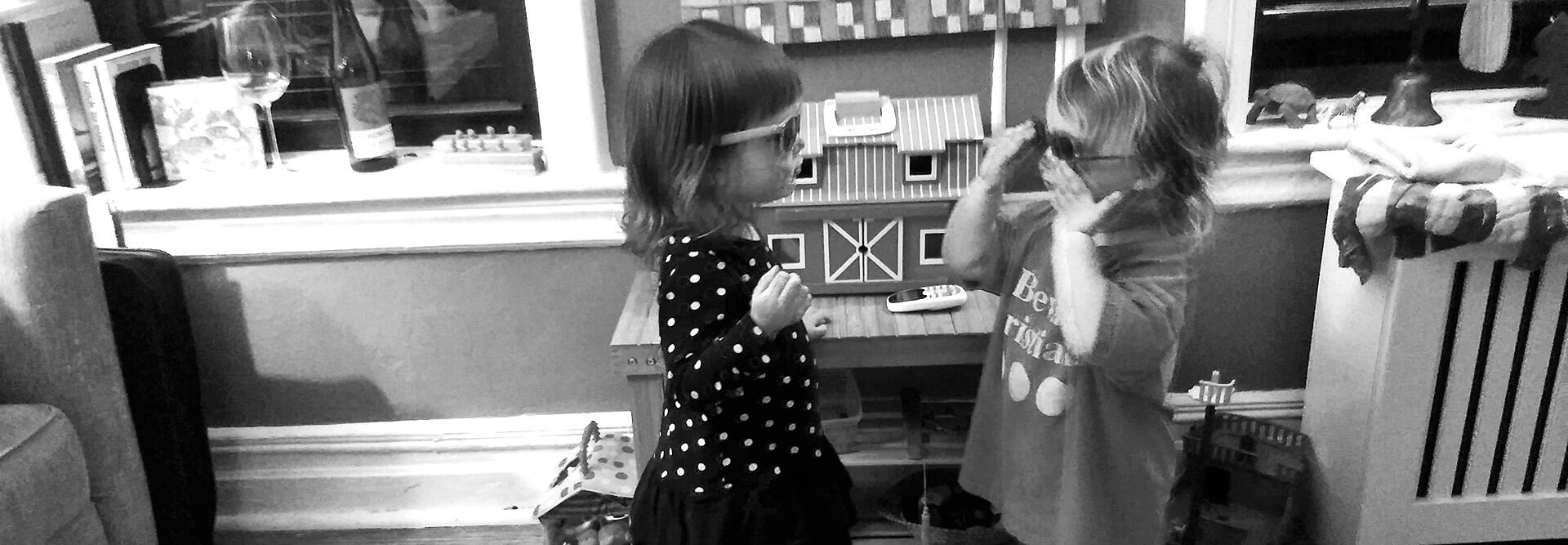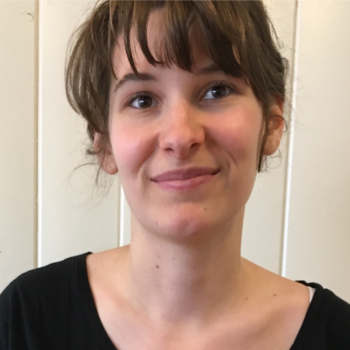“But... How did you learn the things that you needed to know?”
Everyone involved in SDE knows the common questions — “How did you get into college,” “How did you learn the things you needed to know,” “You mean you just played all day,” and, the most famous of course, “But what about math?”
I–as much as anyone else involved in SDE–have been fielding these questions for years. When I am asked, “Well, how did you learn the things you needed to know?” it strikes me more as a reaction to what society and academics have told us is important to know than a genuine question about how unschoolers and other self-directed young people actually learn. However, I believe that somewhere at the root of their question is genuine curiosity about how, without school, I was able to learn, thrive, and end up where I am today. The beauty of this question is that every answer is going to be different. Even those who went through conventional schooling will have different stories about how they actually learned. This is my story.
My education can be described rather simply: If I loved something, I followed it–as far as I could.
So how did I gather all the information I needed to be successful at college1 without taking many science classes or finishing history books? In some ways, we won’t ever know the intricacies of all the ways that individual humans learn. That is part of the beauty of Self-Directed Education: it is simply living life. Humans learn naturally in ways that we cannot fully define. However, as I learn more about Self-Directed Education, play, and learning, the answers keep coming, keep flooding in. I realized that there were no facts that I missed learning about in conventional school that I couldn’t learn about later from a trip to the internet, and certainly no facts that I would have bothered to remember. Learning is a natural result of living life. But with that description, how do I answer the question, “So...how did you learn?”
I learned through play. Each of the stories I tell describes different kinds of play that I engaged in, and continue to engage in, throughout my life. I played at the creek where we built bridges, created forts, and made up stories. I tested materials (stones, bricks, wood, mud) and physics, and I played with basic ideas of survivalism. Often when one is playing within a theme, they seek knowledge about that theme. I wrote, read, and researched about aspects of nature and living off of the land, because it was interesting to me. I played games that my friends and I created, negotiated, and changed based on outcomes and appeal. I played fantasy games inside and outside, created storylines and characters, and connected my fantasy worlds to those created by others. In my fantasy play I developed, among other things, a better understanding of roles, emotions, characters, and empathy for different perspectives.
I learned through genuine conversations with people in my life. At a recent birthday party that my friend hosted she asked each person to share a favorite memory of me. When it was my father’s turn he told the story of driving with me to the karate dojo, during which we would have lengthy discussions, playing with ideas together. This is also one of my most treasured memories and a situation in which I learned so much. Our discussion topics ranged from politics to plays, to psychology and social interaction, as well as obscure pieces of U.S. history; our discussions were some of my first experiences using collaboration as a way to expand and challenge ideas.
At the heart of our conversations was a genuine relationship. I learned from my father, not because he forced or expected me to, but because he trusted and respected me. I learned from him because I chose to. I learned about the importance of having conversations with people whose opinions, thoughts, and information differ from mine. I learned about the importance of genuine curiosity within conversation, especially between adults and children. I carried this to my relationships; to college; to my work at a play-based preschool, where we once again experienced the power of stimulating conversations; to my work with teens in SDE spaces; and I carried the lessons of conversations and curiosity within relationships to all of my future career and personal choices.
These conversations are powerful because of the varying knowledge and experiences that each person has, and the way that knowledge sticks with you when you repeat it to another person. Every day I am with self-directed young people, and we talk about everything from culture, to fads, to media, to memes, to politics, and more, I feel intense and deep learning about human relationships, culture, and ideas. Many believe that teaching is the best way to learn, but I would reframe that to “mutual sharing,” instead of “teaching.” Take a group of fifteen people, each with a unique set of knowledge, and each one discussing ideas with another. Not only will these people acquire knowledge, but the knowledge that they are sharing with others is more likely to stick with them.
This memory flashes through my mind frequently, as I’ve recently been able to relive this experience with my step-son. Taking him to his free school several days a week, he asks me tons of questions, shares his ideas about things, and we have the same type of conversations that my father and I had. Even now, I am still learning through conversations during car (or bus, or bike) rides; it’s one of my favorite ways to learn.
While growing up, I also learned through freely choosing to go deeper into the activities that I enjoyed. Spanish, as both a learner and a teacher; Martial Arts; musical theater; various forms of dance; having different jobs from the time I was ten; managing my own money; lots and lots of Dungeons and Dragons; and plenty of computer games; to name a few. Each of these activities I pursued of my own volition. Again, each person’s path will be different, but one of the most important aspects is that they choose what they are doing. Many unschoolers choose to take conventional classes or engage with conventional educational programs, but the difference is that they are choosing to do so based on their interest and desire to learn.
After several years of taking Spanish at my homeschool resource center, I became a teacher’s assistant in Spanish classes and president of the Spanish club. After two years of training, I began to assist in karate classes. Musical theater provided an outlet for creative and physical energy, as well as developing my determination and commitment to see something through to the end.
In my third year of Spanish classes at Edmonds Homeschool Resource Center (EHRC), I asked my Spanish teacher if I could be her assistant. She never had assistants in her classes before but agreed immediately. I spent the next two-and-a-half years helping in classes. By the end of the first year, I decided I wanted to be a Spanish teacher. I was not only drawn to Spanish, but also to the feeling of joy when a student succeeded. My teacher was enthusiastic and energetic and made learning fun. I vowed to be exactly like her when I got older. Of course, opinions, ideas, and thoughts change, and my idea of what “being a teacher” means has evolved over time.
As I stated, just after two years at the karate dojo, I was on the floor assisting. I continued for years, eventually as an instructor for several years before my career as an early childhood educator started. Still, a lot of my time was spent “hanging out” with my friends.
In-between classes at EHRC, my friends and I would find each other and go do things such as lay down and chat in the grass, play games in abandoned classrooms, or walk to the store to buy food or just look around. Relationships, connection, and discussion were what made my heart light up, and they still are. In my unschooling experience how I learned the most was being in relationship with people, and what I learned the most about was how to be in relationship with people in various ways — the dynamics of friend groups, how to take care of one another, the different ways in which people relate — I can’t imagine a better way to learn about being with people than being with people.
You may notice a pattern, but I didn’t see it right away. I wanted to support people in their learning, and I deeply valued relationships, conversations, and connecting with people. Throughout my unschooling not only was I able to participate in activities that interested me and skip the ones that I would have ignored anyway, but I was able to weave my passion and interests into everything I did.
My life was fueled by passion, curiosity, and collaboration, the same values that have stayed with me as an adult self-directed learner. As I continue to grow and learn, my definition of what it means to “help someone learn,” and how I relate to people, evolves. However, that idea is at the center of each day of my life.
So how did I learn the things I needed to know? The same way that I still learn: through play and self-direction, discussion and collaboration, direct experiences, and community and relationships. I learned exactly what I needed to know. I learned what my passion is and how to pursue it. I learned how to continuously learn and grow through conversations with people, and in reciprocal relationships, and how to direct my experience to the areas that I am passionate about. I learned how to find and pursue the knowledge that I wanted and needed for my own life. There is one addition: now, I also learn from books because now I enjoy it.
[1] Other than the one-semester Spanish class I took at a local high school, my first experience in conventional schooling was attending college as a running-start student at age 16. Running start is a program in Washington state in which high schoolers can attend a local community college for free and get both high school and college credit. To this day, I still get mostly “A” grades in my college courses, and to this day my father’s response is, “That’s great honey. Grades don’t matter.”
If you enjoyed this article and feel called to give back to ASDE, here are ways you can support our work:
- Donate money
- Share our content with others! Click one of the buttons above to easily share on Twitter, Facebook, or email.
- Consider becoming a Contributor for Tipping Points
Tipping Points Magazine amplifies the diverse voices within the Self-Directed Education movement. The views expressed in our content belong solely to the author(s). The Alliance for Self-Directed Education disclaims responsibility for any interpretation or application of the information provided. Engage in dialogue by reaching out to the author(s) directly.






